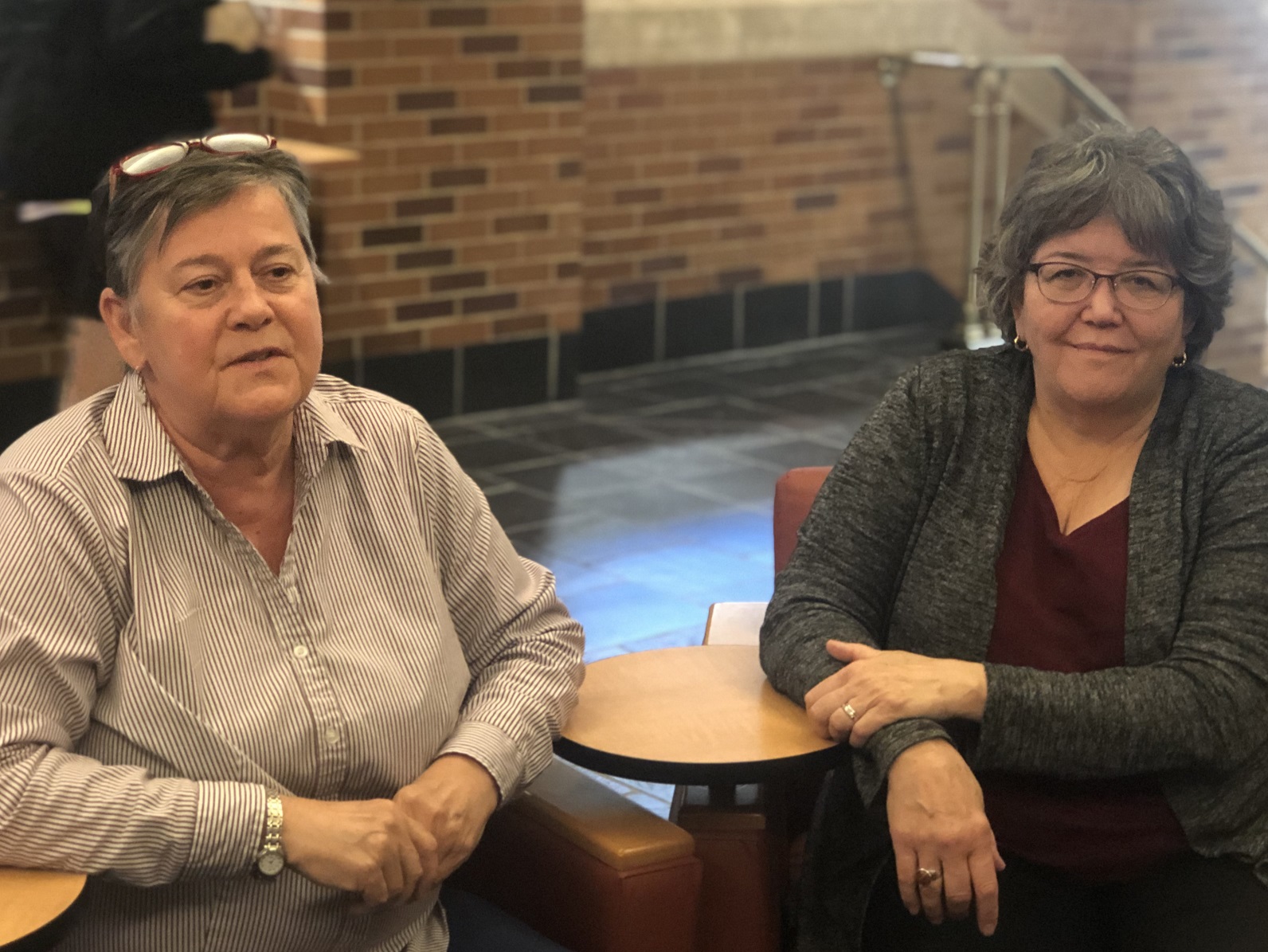UMSON Faculty Join $1.3M HRSA Workforce Development Project for Interprofessional Treatment of Opioid Use Disorder
November 18, 2019 Giordana Segneri
Project aims to prepare psychiatric nurse practitioners, psychiatric residents, and Master of Social Work students for interprofessional practice to treat those affected by opioid use disorders.
Charon Burda, DNP ’16, PMHCNS, PMHNP-BC, CARN-AP, (left) assistant professor, Department of Family and Community Health, and director, Doctor of Nursing Practice Psychiatric Mental Health Nurse Practitioner – Family specialty, and Katherine Fornili, DNP ’16, MPH, RN, CARN, FIAAN, (right) assistant professor, Department of Family and Community Health, at the University of Maryland School of Nursing (UMSON) are leading nursing education efforts on a three-year, $1.3 million Health Resources Services Administration (HRSA) workforce development grant-funded project at the University of Maryland, Baltimore (UMB).
Burda, as co-project director, and Fornili, as program trainer, join colleagues from the University of Maryland School of Social Work (SSW) and University of Maryland School of Medicine (SOM) in preparing psychiatric nurse practitioners (NPs), psychiatric residents, and Master of Social Work (MSW) students for interprofessional practice to treat those affected by opioid use disorders and comorbid behavioral health conditions. The long-term goal is to build a behavioral health workforce focused specifically on this population in high-need locations and to model the effectiveness of using interprofessional core competencies to change future practice and improve health outcomes.
The project, Behavioral Health Workforce Integration Service and Education – Interprofessional Opioid Workforce Advancement (BHWISE-IOWA), involves collaborators Paul Sacco, PhD, LCSW, associate dean for research and associate professor, SSW, who serves as the grant's project director; Devang Ghandi, MBBS, MD, adjunct associate professor, Department of Psychiatry, SOM; and Eric Weintraub, MD, associate professor, Department of Psychiatry, SOM. The team will recruit and educate a total of 12 psychiatric NPs (four per year), three psychiatric residents (one per year), and 33 MSW students (11 per year) with a commitment to practice in underserved communities in the Baltimore-Washington, D.C. metropolitan region and beyond.
The project builds on six years of prior work also funded by HRSA. Since 2014, SSW collaborators have educated more than 200 UMB students for practice in integrated behavioral health settings with patients across the lifespan. Through these years of implementing workforce development projects at UMB, that team has developed a robust model for selecting and educating students, working with university stakeholders, and collaborating with community providers who are working to stem the tide of the opioid epidemic. The recent $1,348,558 grant from HRSA will extend and deepen this work in meaningful ways, adding the psychiatric NP students and the medical residents in psychiatry who will learn to practice alongside social work students. They will work with behavioral health providers that offer medication-assisted treatment and other evidence-based approaches.
“Utilizing the interprofessional education core competencies can change future practice and improve the health outcomes of those we serve,” Burda said. “We will be instilling the ethics of interprofessional practice, learning the roles and responsibility of each discipline, and incorporating our plans of care through team approaches with advanced communication. This workforce development grant puts mutual respect and scopes of practice into action in a way that strengthens the collective professional response. This is a very exciting prospect and has our students modeling leadership and best practice in every site that witnesses their practice.”